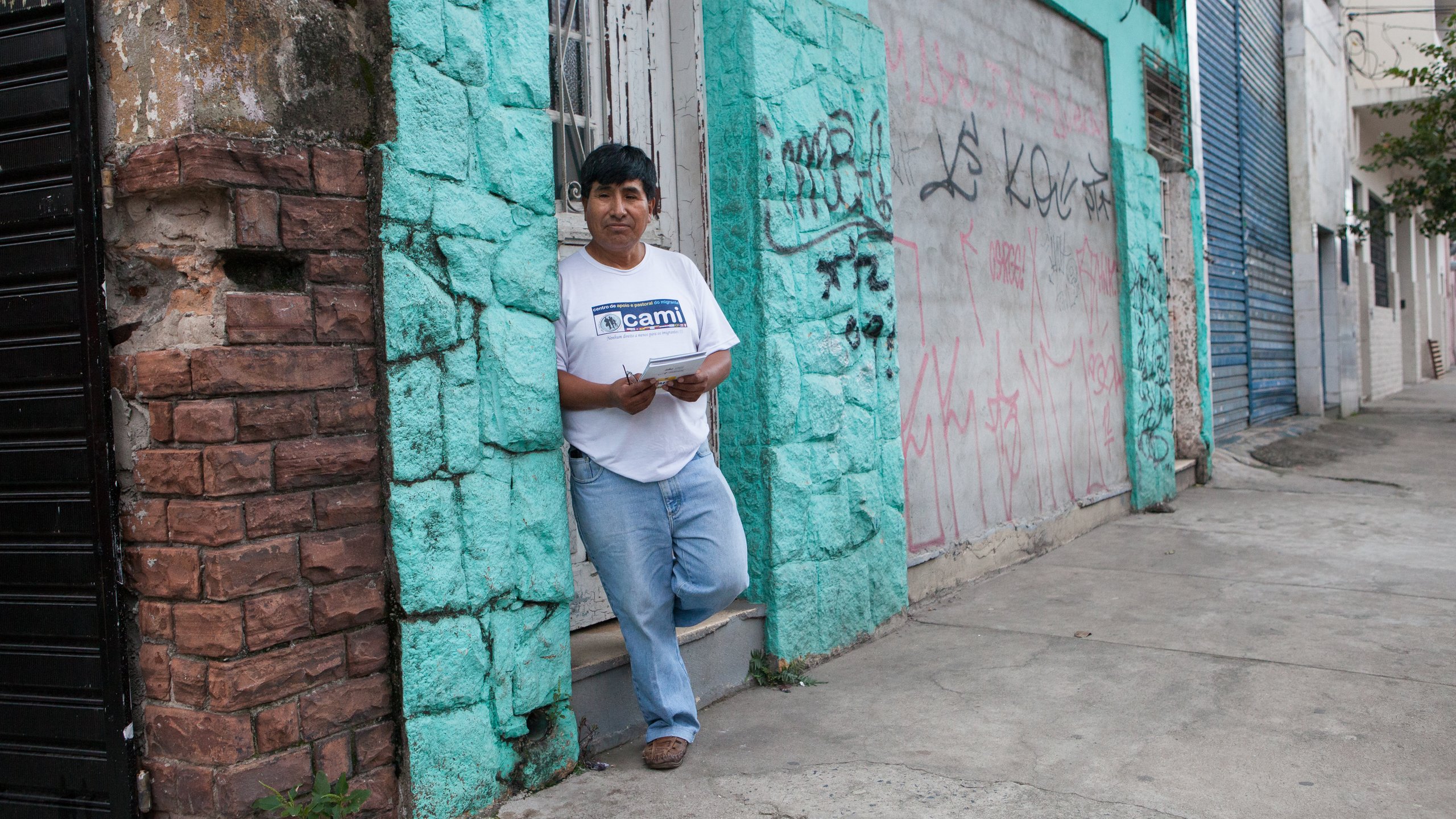Cami
30 December 2017 C&A Foundation

What did we evaluate?
The partnership with Centro de Apoio e Pastoral do Migrante (CAMI) began in 2013 and remains active until today. This independent evaluation took place between April and July 2017 and had a dual role: on the one hand, to analyse its relevance, efficiency, effectiveness, impact and sustainability, and on the other, to identify strategic lessons to improve the partnership and inform future initiatives.
The process began with the reconstruction of the Theory of Change of the partnership and, based on the expected results, three axes of analysis were prioritised in this evaluation:
- Assistance and empowerment of immigrants
- Advocacy
- Institutional strengthening
The evaluators considered the overall performance of the partnership to be good (on a scale of three items: Good, Fair, and Insufficient). See the main findings for each of the criteria evaluated below:
Results
Relevance, Good.
The exploitation of migrant labour in the fashion industry is still a pressing challenge; public policies are still inadequate, and the demand for immigrant care remains high. The purpose of the partnership is very much in line with the missions of both C&A Foundation and CAMI;
Efficiency, Fair.
The projects were considered adequate and effective in achieving the results. Nonetheless, there were some limitations because the partnership did not have a clear theory of change and at times there was a dispersion in priorities and activities.;
Effectiveness, Good.
CAMI could respond adequately to the most frequent needs of the migrants. Also, CAMI is regarded as an organisation with great mobilisation power for political influence and advocacy, although they don’t always do so as strategically as they could. This was especially evident in the difference in performance between the municipal and state levels, where it was good, and the federal level, where it was practically non-existent. External communication was also weak – Cami has not done enough to raise its profile with potential beneficiaries and policy-makers at the Federal level.
Impact, Good.
Since 2013, CAMI supported the regularisation of about 18,000 immigrants, has offered legal and social assistance to 4,000 immigrants, several courses to 2,000 immigrants and held empowerment activities for around 700 women. In terms of advocacy, CAMI actively contributed to the creation, public discussion and approval of the Municipal Policy for Migrants in São Paulo and in the production of data, public debates and mobilisation for the approval of the State Law Against Slave Labour. However, the evaluation points to weaknesses in advocacy at the federal level.
Sustainability, Insufficient.
Considering the sustainability of the results, the creation and/or improvement of laws, policies and programmes for immigrants tend to guarantee the sustainability of acquired rights. Regarding CAMI, the evaluation points its financial sustainability as the greatest risk. By 2016, C&A Foundation’s funding made up about 2/3 of CAMI's budget.
The evaluation made recommendations and identified challenges and paths of change from which the following lessons were extracted:
- CAMI has gained recognition and respect in the field over the years and is now an important actor for the immigrant community on the various fronts in which it operates. This offers the legitimacy that is key to the adhesion of immigrants;
- CAMI makes use of pedagogy and participatory methodologies, involving the beneficiaries themselves in the design, dissemination and execution of the programmes. With this, the immigrants tend to feel like active participants in the process, offering them leadership and empowerment;
- The immigrant-to-immigrant approach, and the empowerment of multipliers in the communities promotes the quality of communication with immigrants and allows to reach and involve more immigrants in CAMI’s activities ;
- Integrating CAMI´s activities with the immigrant protection network contributes to the enhancement of the services offered to immigrants and to an articulated response of social policies;
- The main weaknesses found in the evaluation are due largely to CAMI’s institutional development challenges: lack of planning culture, information management and monitoring and evaluation, as well as the development of a financial sustainability plan.
